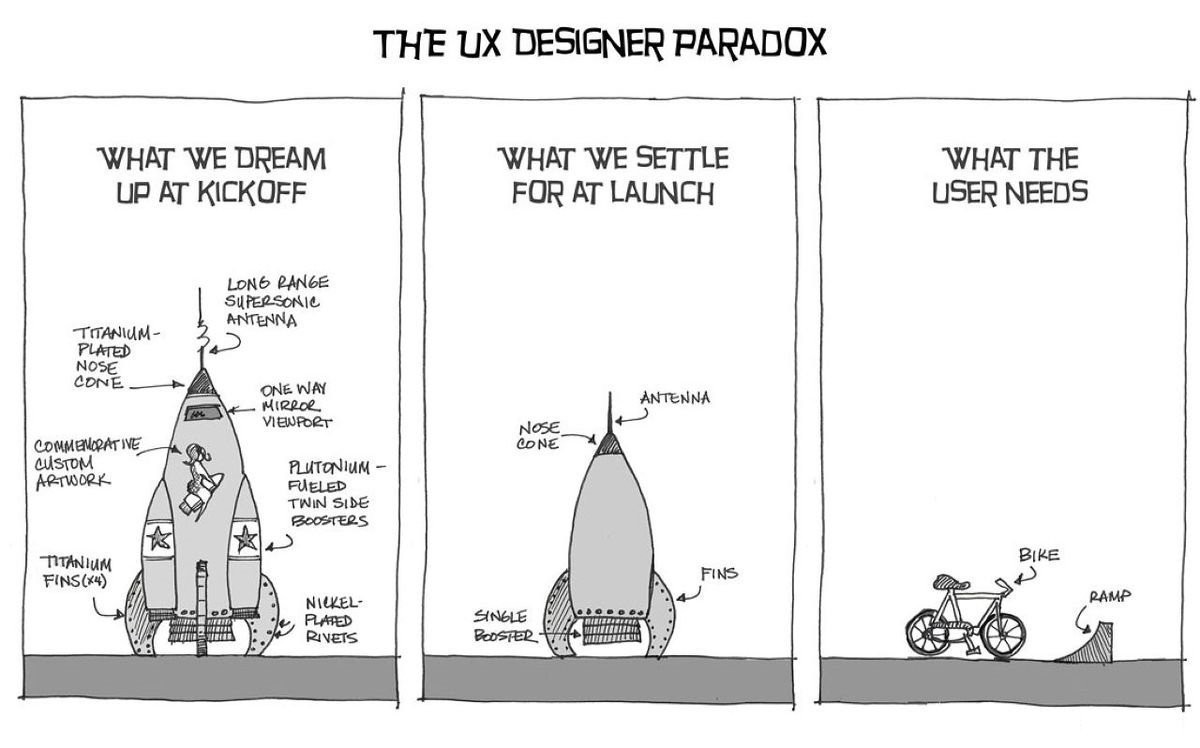Over-engineering
Feb 11, 2021

When I first started coding, I actually followed the idea of “do not re-invent the wheel” and “do not repeat yourself” quite stringently. It wasn’t due to conscious efforts but rather lack of skills. I couldn’t really accomplish much without using third party libraries, and my code was simple, so there wasn’t much repetition to start with. Later, as my skills grew, so did the temptation to re-invent the wheel. It felt really good indeed, when I told myself “hey I accomplished this feature from scratch” or “I can already do so much with only native libraries”. There was the urge to over-engineer, which also felt like a cool flex when I tell others “we should make this part of the code more declarative so it’s easier to maintain” or “let’s abstract this away so the code looks cleaner”.
In part, such impulse came from recognizing the oversight in my past projects: poor separation of concerns, mixed level of abstraction, imperative logic, which led to the ugly spaghetti code that I hardly feel comfortable looking at. On the other hand, it also came from a need to prove myself. Like most people venturing into software,I often question whether programming is the right endeavor, especially when I can’t figure out how to solve a bug, or simply felt overwhelmed by the complexity of the code base. So I dived in, into the library source code, into resources like “the pragmatic programmer”, “eloquent javascript”, “Douglas Crockford”, “Dan Abramov”, you name it. And when I finally gained the power to actually implement things from scratch, build abstraction and “see the bigger picture”, I wanted to put them everywhere!
Truth is, too much of anything is bad. There is no lack of preaching that resolves around the idea of “Don’t over engineer things”, like this, this, and this. In a recent project I participated at hatchways, I was advised that while it is important to have such skills and clairvoyance, it shouldn’t slow me down in shipping features.
It did take me a while to really appreciate the idea though. At the end of the day, software engineers ship business logic, the one that keep us from starving. A lot of the books, talks and lectures would emphasize the craftsmanship of the software, which supposedly should help us better ship our software. But it rarely seems to be the case in real life. It seemed like even Facebook can still tolerate the supposedly bad code:
…we moved mountains of code doing the horrible, inglorious work of rewriting hundreds of thousands of lines of spaghetti code in production while people used the product… (source)
I remember this proverb when growing up, that one should always spend time on sharpening the knife before cutting logs. I have clearly taken that advice in coding, as I spent tons of time learning the javascript fundamental, learning concepts and underlying mechanism that I probably won’t need to just get things to run, and the like. Similar ideas echoed through my education as well, which emphasizes a lot on doing things the proper way, implying an easier path down the road. What I don’t hear often is the time. With enough time, I could have built a laser saber to cut the logs, but I’m told to sharpen the knife only because that much amount of time is not available. This is especially true in software engineering, more often than not, we don’t have that much time to sharpen the knife.
It’s probably an intricate balance that could take a while to learn huh.
